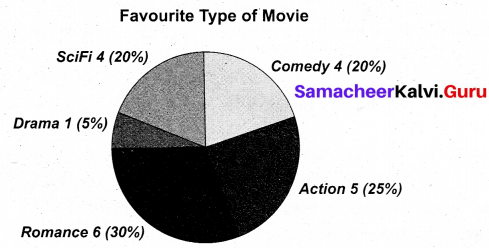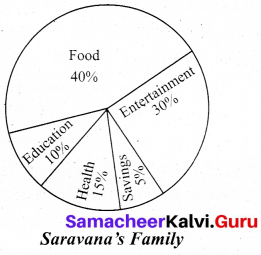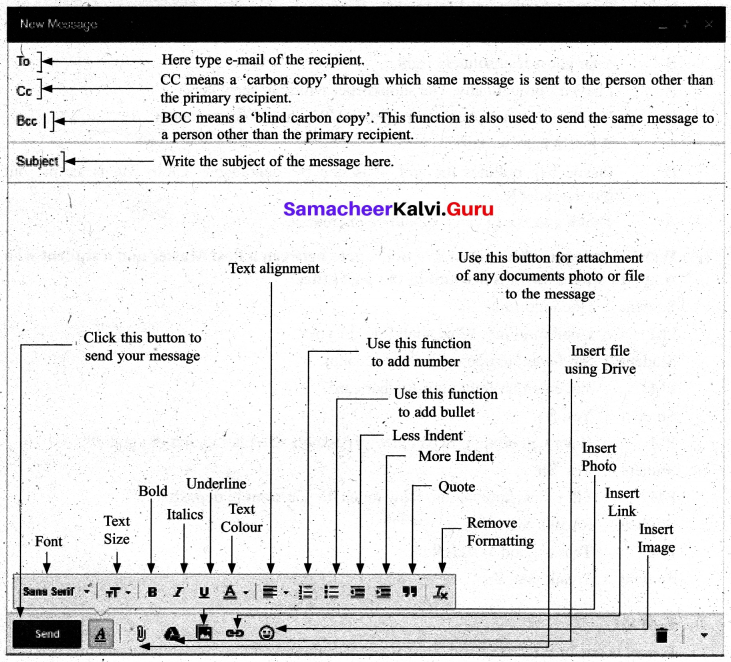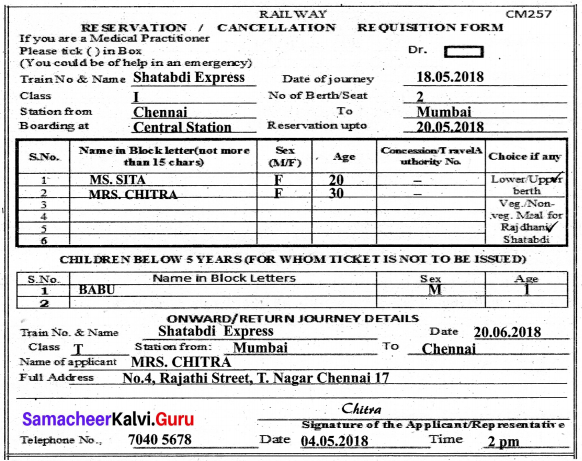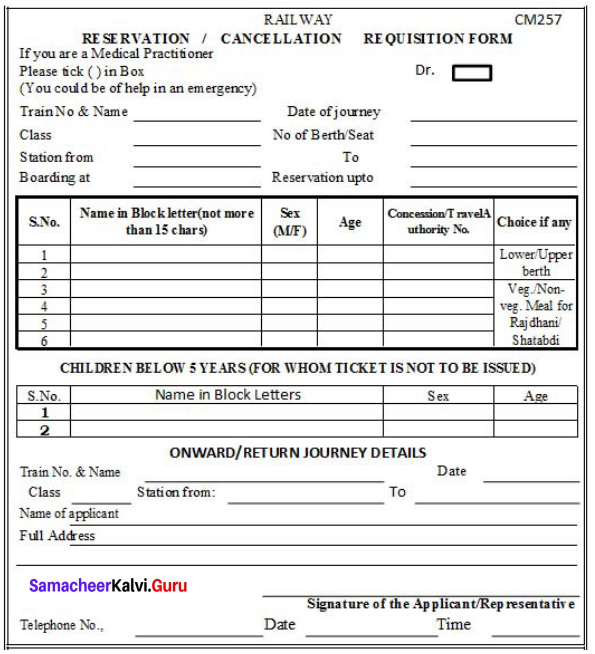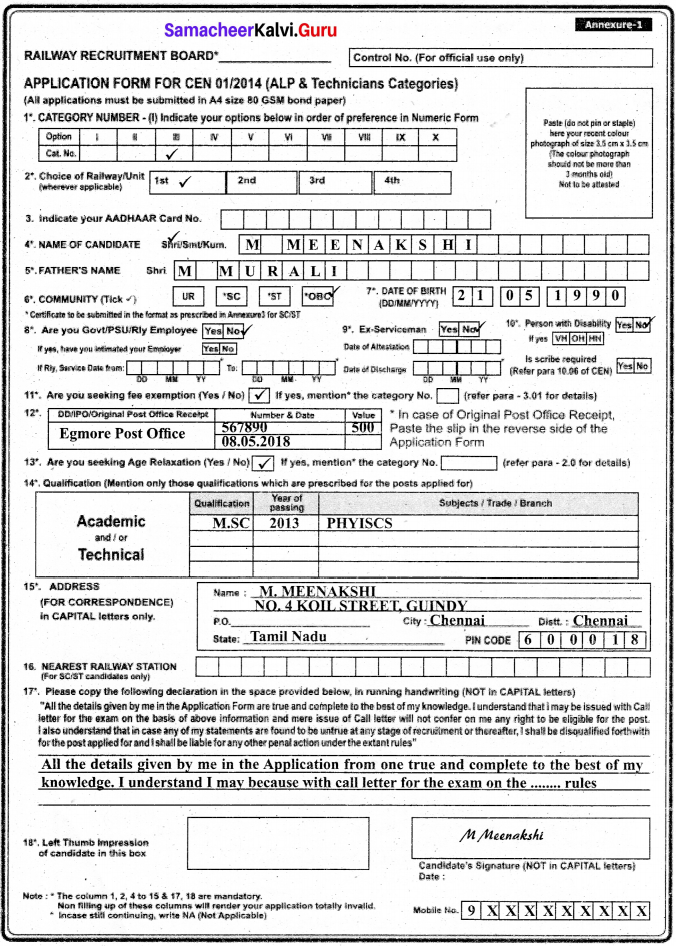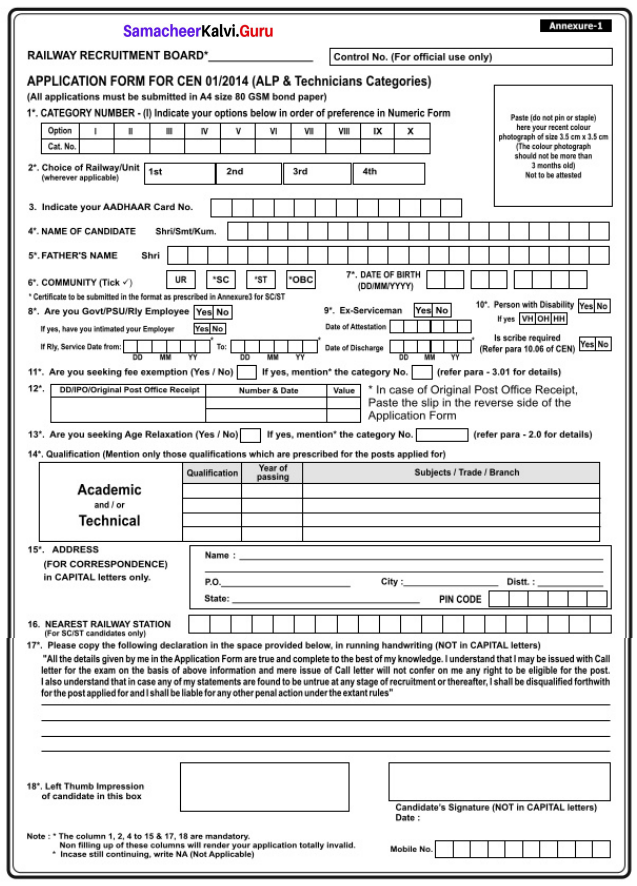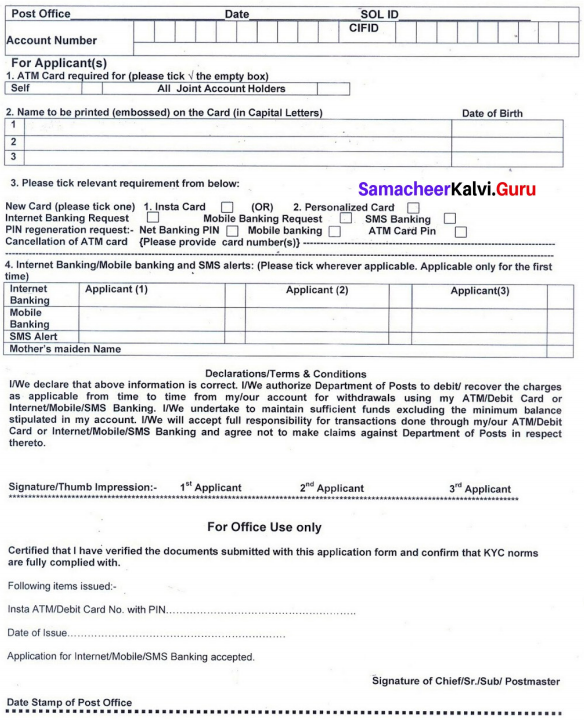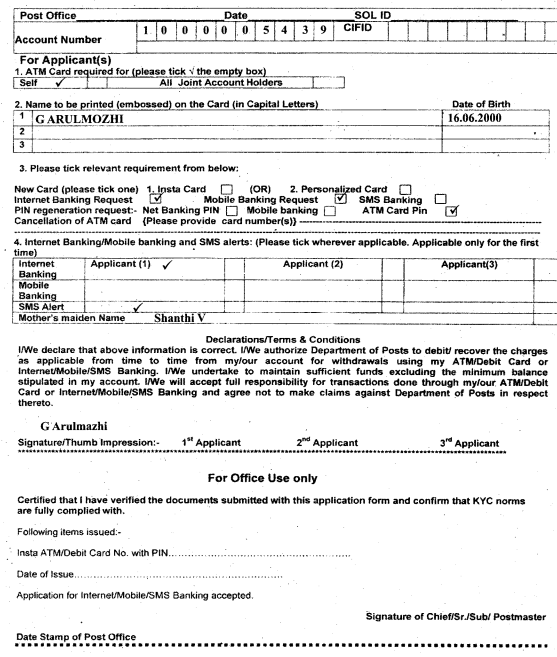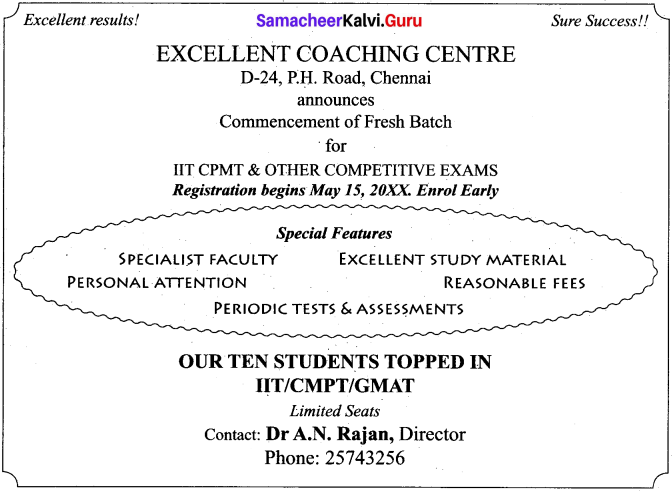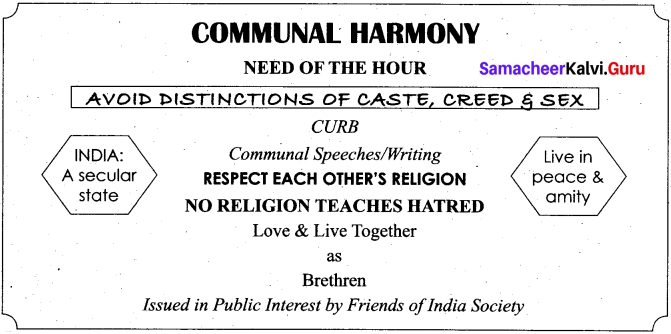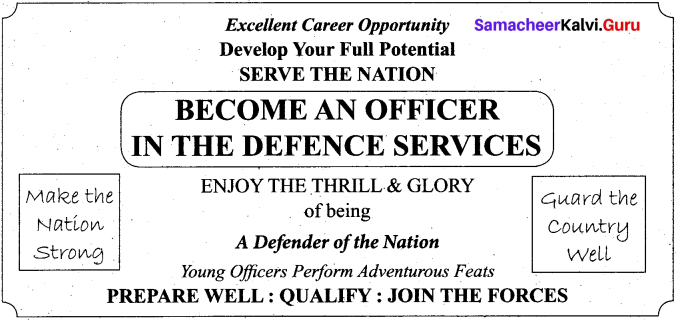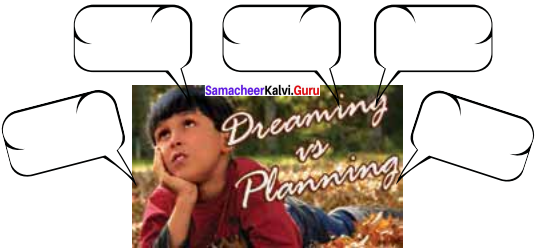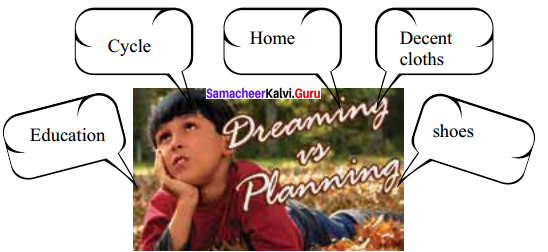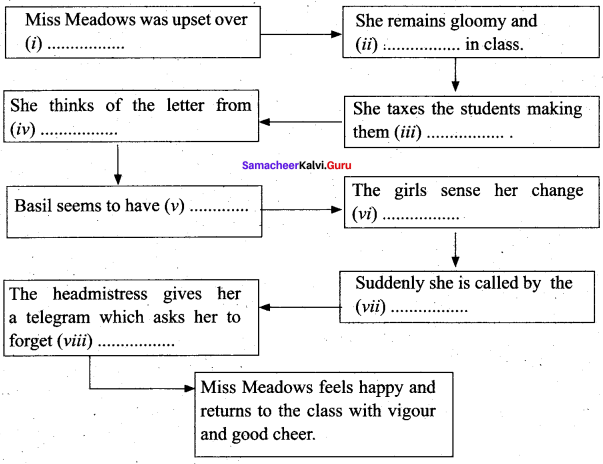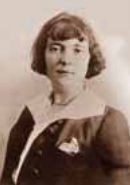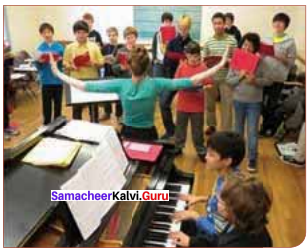Students who are interested in learning of 11th English Writing Letter Writing Questions and Answers can use Tamilnadu State Board Solutions of 11th English Chapter Wise Pdf. First check in which chapter you are lagging and then Download Samacheer Kalvi 11th English Book Solutions Questions and Answers Summary, Activity, Notes Chapter Wise. Students can build self confidence by solving the solutions with the help of Tamilnadu State Board English Solutions. English is the scoring subject if you improve your grammar skills. Because most of the students will lose marks by writing grammar mistakes. So, we suggest you to Download Tamilnadu State Board 11th English Solutions according to the chapters.
Tamilnadu Samacheer Kalvi 11th English Letter Writing
Check out the topics covered in Writing Letter Writing Questions and Answers before you start your preparation. Improve your grammar skills with the help of Samacheer Kalvi 11th English Book Solutions Questions and Answers pdf links. The solutions for Tamilnadu State Board 11th English Textbook are prepared by the English experts. So, if you follow Tamilnadu State Board Solutions 11th English Textbook Solutions you can cover all the topics in Writing Letter Writing Questons and Answers. This helps to improve your communication skills.
Letters are the most common forms of written communication. Writing letters is an art and it is mastered through practice. We write letters to friends and relatives to maintain contacts with them. However, in the present times with the boom in methods of communication, many of us don’t have the time or the inclination, or the temperament and the art to write letters. So telephone, fax and e-mail have replaced personal (informal) letters.
However, formal letters are still in vogue. Commerce, trade, official correspondence, public representation, complaints and other dealings, transactions and communication with the people are still conducted through letters. Students are therefore advised to cultivate the art and skill of letter writing. It must be remembered that different kinds of letters follow different conventions. . So, the format should suit the type.
Informal Letters
These are ordinary personal letters and informal invitations written to relatives, friends and acquaintances. The main characteristics of informal letters are:
- These letters are first/second person presentations.
- Personal feelings and emotions find an. expression.
- The writer’s address is given in the usual place.
- The salutation is usually ‘Dear’ plus ‘Name’.
- The date of writing is given, but the year is generally omitted.
- The style and tone are relaxed and informal.
- Different tenses are used as the sense demands.
- The complimentary close is: ‘Yours lovingly’ or ‘Yours truly’.
Formal Letters
A formal letter is different from a personal letter in tone and content. These letters are written for official purposes or commercial correspondence, so they must be systematic, specific in content and formalin the treatment of the’subject. The main features of formal letters are:
- The matter is brief, clear and to the point.
- There are separate paragraphs for separate topics.
- The first paragraph indicates the theme of the letter.
- The facts are stated in simple and direct language.
- Long and high sounding words are avoided.
- Even while lodging a complaint or making criticism, the tone should be polite.
- Clumsy expressions should not be used.
- The complimentary close is: ‘Yours sincerely’, or ‘Yours faithfully’.
Format/Layout Of A Formal Letter
08th March, 20XX
From
XXX
Sender’s Address & Phone No.
To
THE DIRECTOR
Addressee’s Address
………………………………
………………………………
Respected Sir/Madam,
SUB: For the post of a Senior Accountant
REF: The Hindu dated 06/03/20XX
With reference to your advertisement dated 6th March, 20XX in The Hindu, I hereby wish to apply for the post of a Senior Accountant in your esteemed organization.
If given an opportunity I assure you of my sincere service to the satisfaction of my superiors.
Please find enclosed my Bio-data for your kind perusal and looking forward to a positive reply at the earliest.
Thank you,
Yours sincerely,
XXX
To
The Director
………………………………
………………………………
Note: There is no punctuation after From and To
Thank you has been used instead of Thanking you
Types Of Formal Letters
A. Business Letters
- Making enquiries/asking for information
- Replying to enquiries/giving information
- Placing orders and sending replies
- Cancelling orders
- Letters of complaints
B. Official Letters
- Registering complaints regarding civic amenities, law & order, etc.
- Making enquiries pertaining to deveopmental projects, health facilities, etc.
- Making requests/appeals
C. Letter To The Editor
- Giving suggestions on an issue (usually of public interest)
- Expressing views on an issue already raised in an article/write-up/in a published letter
D. Letter Of Application
- Applications for jobs
What Is A Bio-Data?
The application for a job is sometimes accompanied by a bio-data of the applicant. The bio-data is also called a resume or curriculum vitae (C.V.). It contains the following information about the candidate:
- Personal information, e.g., age, health, sex, etc.
- Educational/professional qualifications
- Experience/suitability for the job
Bio-Data
Name: Xxx
Date Of Birth: 8th May, 1986
Marital Status: Married.
Husband’S Name: Mr. Shandy Rajeevan
Address For ComMUNICATION: YYY
Contact Number – MOBILE: 9988776655
Residence: 01222445566
Mother Tongue: Tamil
Language Known: English and Tamil, Hindi And Malayalam (to speak)
Passport Number: A7265511
Educational BacKGROUND : (In reverse chronological order)

Professional ExPERIENCE : (In reverse chronological order)

Hobbies: Photography, Gardening, Reading, Travelling
Expected Salary: Rs 35,000/per month
Salary Drawn: Rs 32,000/ per month
Reference: (1) Mr. Ravi (XYZ Pvt. Ltd.) 9998887777, (2) Mrs. Rani (Raj Enterprises) 9900000222
Declaration
I hereby declare that the above given information is true to my knowledge.
Station: YYY
Date: 08.03.20XX
XXX
SIGNATURE OF THE APPLICANT
Solved Questions
(i) Write a letter to your father seeking his permission to join the swimming class.
Answer:
Chennai
01.05.17
Dear father,
I’m fine. I hope all are fine at home. I wish to join a swimming class. Mr. Rakesh is the coach. The charges are only two hundred rupees per month. The classes start next Monday. Please give me permission.
Thank you,
Yours lovingly,
XYZ
To
Mr. Somu,
12,” Railway Station Road,
Thirunelveli
(ii) As Sports Secretary of your school, write a letter to the Secretary of the Sports Authority of India, Delhi requesting him for details regarding the sports scholarships that are available for students.
Answer:
20 April, 20XX
S. Narula
St. John’s School
Ramapuram
Chennai
The Secretary
Sports Authority of India
New Delhi
Sir,
Sub: Information regarding sports scholarship
I have come to know from my friend in Hyderabad that the Sports Authority of India awards scholarships to sports persons and athletes who distinguish themselves in various sports disciplines during their school days. The tenure of these sports scholarships varies from three to five years.
Some of our athletes have topped at the district level and have been selected for national events. They are keen to know the availability of sports scholarships awarded under your benign guidance. The specific conditions and eligibility criteria may please be intimated to us.
I hope you will provide the necessary information at the earliest.
Yours faithfully
S. Narula
Sports Secretary
To
The Secretary
Sports Authority of India
New Delhi
(iii) Ravi Mohan of 59 Adarsh Nagar, Secunderabad, a Class XII student of the Commerce stream sees this advertisement.
Coaching in Commerce Stream
Sure Shot Institute
14-A Lancer Barracks, Secunderabad
The best choice to ensure success in the exams
Hurry! Join our classes! Limited seats
He writes a letter to the institute seeking information about the subjects taught, the timings of the classes, class size and fees. Write his letter.
Answer:
16 July, 20XX
Ravi Mohan
59, Adarsh Nagar
Secunderabad
The Director
Sure Shot Institute
14 A, Lancer Barracks
Secunderabad Sir,
Sub: Coaching in Commerce stream
Kindly refer to your advertisement in the Deccan Times dated 15 July. I would like more information and details about the courses the institute offers, facilities available, timings, fee structure and size of classes/groups. I need coaching in Accountancy, Advanced Mathematics, and Statistics. Please let me know if coaching is available in all these subjects and what is the schedule. Does your institute cater to individual difficulties or do you discuss and resolve general problems?
Kindly enlighten me on all the above points. In case you have a detailed information booklet, do send it to my address given above.
Yours faithfully
Ravi Mohan
To
The Director
Sure Shot Institute
14 A, Lancer Barracks
Secunderabad
(iv) Write a letter to the Police Commissioner (Traffic) about the inadequate parking facilities in the commercial area of Nungambakkam, which is causing a lot of inconvenience to the people. You may also offer your suggestions to solve it. You are Rakesh/Radhika, No. 12, Nungambakkam, Chennai. (Word limit: 150 words) .
Answer:
12 March, 20XX
Radhika
No. 12, Nungambakkam
Chennai
The Police Commissioner (Traffic)
Chennai
Sir,
Sub: Inadequate parking facilities
I wish to draw your attention towards the lack of an essential civic amenity which causes trouble not only to the vehicle users but also to the general public. The inadequate parking facilities in the commercial street area of Nungambakkam has caused a sea of chaos, confusion and disorder. Most of the vehicles are parked on roads blocking the passages to and from the parking spaces. The problem gets worse during the evening hours. People are stranded as they can’t park their vehicles at places earmarked for parking. Nor can they move out easily towards the road from the parking spaces.
I would like to offer some practical suggestions:
(i) Vehicles with even number should be allowed on even days, i.e., (Tuesday, Thursday F and Saturday) while those with odd ones be used on odd days (Monday, Wednesday, Friday). This will cut the number of vehicles by 50%.
(ii) The parking lots should be controlled by the police so that entry/exit is not blocked.
I hope my suggestions will be implemented for public benefit.
Thank you,
Yours faithfully
Radhika
To
The Police Commissioner (Traffic)
Chennai
(v) As the Regional Manager of a leading XYZ Textile Company, Madurai, write a letter to the American Textile Company, Chennai offering two of your products for bulk sale.
15 April, 20XX
Xyz Textile Company
24 Temple Road
Madurai
The Senior Purchase Manager ,
The American Textile Company
14 Tank Bund Road
Chennai
Sir,
Sub: Offer of Products for Bulk Sale
Ref. STC/20/78
We are one of the leading manufacturers of textile products in India and our products are equally popular at home and abroad. We have received an enquiry from your branch office at Chennai regarding terms for bulk purchase.
We wish to inform you that we grant 30% trade discount to commercial/bulk purchases on an order for not less than one lakh at a time. We allow further discount of 5% to buyers whose orders exceed Five lakh per year.
Our latest price list and illustrated catalogue along with specimen of textiles are enclosed for your kind perusal and approval.
An early reply will be appreciated.
Yours sincerely
A. G. George Sales
Manager
To
The Senior Purchase Manager
The American Textile Company
14 Tank Bund Road
Chennai
(iv) You have placed an order for a few books with City Central Book Shop, Chennai. You have not received the books so far. Write a letter to the bookshop complaining about the non-compliance of your order.
Answer:
25 March, 20XX
A. Shanmugan
Globe Sr. Sec. School
Adambakkam
Chennai
City Central Book Shop
3rd Street
Mount Road
Chennai
Sir,
Sub: Non-compliance of the order No. 11/RS
This is with reference to our order No. 11/RS dated 4th March, 20XX regarding the delivery of a few books for our school library.
In this respect, I regret to state that despite repeated reminders on the phone, the books have not yet been delivered to the library so far. The new session has started and the books are required urgently for reference work by the students. I am quite upset about the non-compliance and negligent attitude shown by your shop towards our order. If the specified books don’t reach us within three days from the receipt of this letter, we will conclude that you are not interested in fulfilling this order. In that case, we’ll be compelled to place the order elsewhere. A list of
books ordered is being enclosed herewith. Kindly do the needful at the earliest.
Yours truly
A. Shanmugan
(Librarian)
Enel.—Photocopy of the book-list.
To
City Central Book Shop
3rd Street
Mount Road
Chennai
(vii) You are Vasanthi, a resident of Ayanavaram, Chennai. The residents feel inconvenience due to the frequent digging up of roads by various departments such as electricity, water supply, sewage, telephone, etc. Write a letter to the Editor, The Times of India, Chennai, highlighting the problem and suggesting remedial measures.
Answer:
25 July 20XX
Vasanthi
No. 2/8, Ayanavaram
The Editor
The Times of India
Chennai
Sir,
Sub: Frequent Digging up of Roads
I would like to highlight the problems faced by the residents of Ayanavaram due to the frequent digging up of roads by various departments, such as electricity, water supply, sewage, telephones, etc. We have to put up with traffic diversions almost every fortnight. The dug roads remain unrepaired and cause traffic hazards as well as accidents.
We have written to the Development Authority many times, but our repeated efforts have failed to bear any fruit. I hope the publication of the letter in your newspaper will draw the attention of the authorities to our plight and motivate them to expedite the repair work.
Yours faithfully
Vasanthi
To
The Editor
The Times of India,
Chennai
(viii) Ready Assurance Company, Coimbatore has given an advertisement in ‘The Hindu’ for recruitment of management trainees to be groomed as managers of their company. Apply for the same, giving your detailed bio-data (curriculum vitae). You are Asokan/ Adithi, 5th Main Road, T. Nagar, Chennai.
Answer:
10 March 20XX
Asokan
5th Main Road, T. Nagar
Chennai
The Personnel Manager
Ready Assurance Company
Coimbatore
Sir,
Sub: Recruitment of Management Trainee
With reference to your advertisement in The Hindu dated 5th March 20XX for management trainees to be groomed as managers for your company, I would like to be considered for the said post.
My Bio-data is enclosed for your perusal and consideration. If I am found suitable, I can appear for the interview at any time suitable to you. In case of selection, I assure you of my unstinted cooperation and devotion in the discharge of my duties.
Yours faithfully,
Asokan
To
The Personnel Manager
Ready Assurance Company
Coimbatore
Bio-Data
Name : Asokan Rajan
Father’s Name : Prof. S. Rajan
Address : 5th Main Road, T. Nagar, Chennai
Date of Birth : 7th August 1987
Educational Qualifications : 1. B.Com., Madras University, 2. MBA from Madurai
Experience : 2 years
Present Employment : Working with Global Management, Chennai
Marital Status : Unmarried
Personal Details : Age 29 years, Height : 5.5, Weight : 60 kg
Languages known : Tamil, English, Hindi, French
Hobbies : Reading, Listening to music, Painting
Reference : Professor Suresh Mohan, Madras University
Declaration
I hereby declare that the above given information is true to my knowledge.
Station : YYY
Date : 10.03.20XX
Asokan
(ix) You are Sunil/Sujatha Kannan, parent of a student of class XI. Write a letter to the Principal, Brilliant Public School, Dharmapuri, drawing his attention to the disorderliness, non-availability of books and lack of cooperation from the library staff and suggesting some improvements in the functioning of the school library.
Answer:
25 March 20XX
Sujatha Kannan
37, Dharmapuri
Tamil Nadu
The Principal
Brilliant Public School
Dharmapuri
Sir,
Sub: Improvements in School Library
During my visit to your school in connection with P.T.A. meeting, I happened to go to the library. I would like to draw your attention to the malfunctioning of the library. I sincerely feel that it can prove more useful to the students if few steps are taken to tone it up.
I was shocked at the disorderliness in the library. Books were lying in heaps and were not restored to the proper shelves. No wonder the book which the library has is reported to be non-available by the library staff. The lack of co-operation from the library staff makes the situation worse. You may take steps to make them alert and willing workers. The shortage/ non-availability of books, if any, may be made up by buying more copies of the volumes more in demand. The old and broken tables and chairs may be repaired if not replaced.
I hope that during our next meeting we shall find the library cosy, spick and span.
Yours faithfully
Sujatha Kannan
To
The Principal
Brilliant Public School
Dharmapuri
(x) Write a letter to the Headmaster of your school requesting him to issue your Transfer Certificate.
Answer:
26 July 20XX
S. Aran
12, Nehru Street
Alanganallur
The Headmaster
Government Boy’s Hr. Sec. School
Alanganallur
Sir,
Sub: Request to issue Transfer Certificate
I completed my Std X examination recently. My Roll No. was 18.1 studied in ‘B’ section. I am going to apply for ITI course pending the publication for SSLC results. Kindly issue me my Transfer Certificate.
Thank you,
Yours sincerely
S. Arun
To
The Headmaster
Government Boy’s Hr. Sec. School
Alanganallur
The main aim is to share the knowledge and help the students of 11th English to secure the best score in their final exams. Use the concepts of Samacheer Kalvi 11th English Book Solutions Writing Letter Writing Questions and Answers in Real time to enhance your skills. If you have any doubts you can post your comments in the comment section, We will clarify your doubts as soon as possible without any delay.


